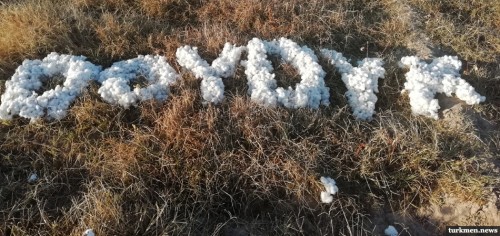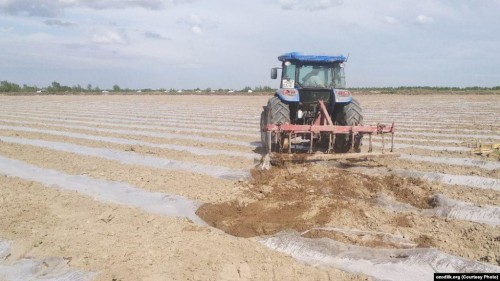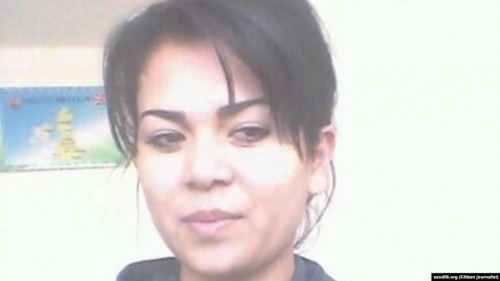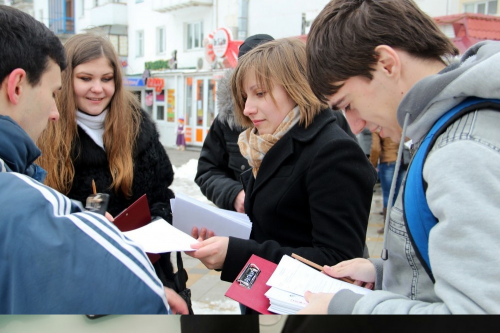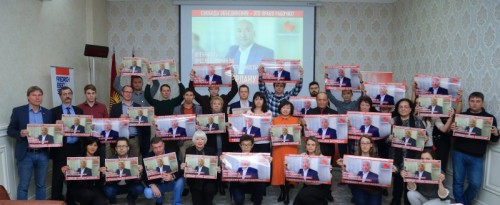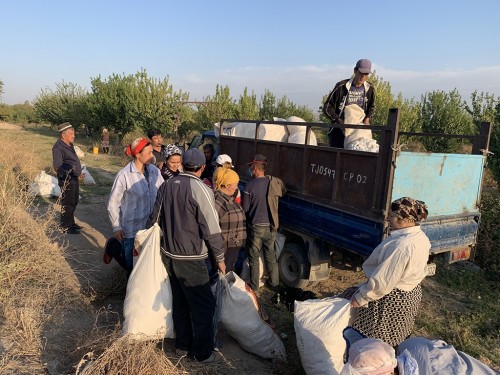Countries
Solidarity campaigns
13 August 2024
Georgia: Support striking workers at Evolution Gaming
5 June 2023
Georgia: Justice for Wolt couriers
10 May 2023
Belarus: Trade union activity is not extremism!
2 November 2019
Kazakhstan: Trade unionist Erlan Baltabay imprisoned - again!
19 November 2018
Kazakhstan: Stop repression and physical attacks on leaders of independent unions; hands off Larisa Kharkova, Erlan Baltabai and Dmitriy Senyavskiy
18 April 2018
MALOKHAT STILL NEEDS YOUR HELP
News
19 December, 2019 / turkmenistan
“We’re sick of it!” Turkmenistan’s Cotton Harvest Drags on to the End of the Year
The president of Turkmenistan has instructed the heads of three regions – Ahal, Balkan, and Lebap – to gather in the remains of the cotton harvest by December 25. He gave the order at a working meeting on December 16.
18 December, 2019 / kyrgyzstan
Kyrgyzstan: Path towards peace and prosperity is best assured by respecting rights of minorities, UN expert says
Despite some progress, Kyrgyzstan needs further measures to guarantee the human rights of minorities, strengthen its democratic institutions and ensure a more inclusive society, if it is to deliver peace and prosperity, said a UN human rights expert on minorities after visiting the country.
17 December, 2019 / kazakhstan
Recommendations to Kazakhstan as part of the UPR: special attention devoted to migrant rights
In anticipation of International Migrants Day on December 18, ADC Memorial, Bir Duino Kyrgyzstan, and the International Legal Initiative welcome recommendations to improve implementation of international treaties and realize fundamental human rights that Kazakhstan received as part of the Universal Periodic Review. Members of international delegations devoted special attention to the spheres of employment and migration, which are both important for the country since, as a receiving country, Kazakhstan has almost one million migrants (approximately seven percent of the population) who regularly face violation of their rights in various areas of life and have fallen victim to various forms of exploitation and human trafficking.
17 December, 2019 / uzbekistan
Uzbek Farmers Get 'Cluster' Bombed By Reforms
After 17 long years of growing cotton and vegetables on his farm in Uzbekistan, Abbas has decided to give up farming.He says President Shavkat Mirziyoev's latest decree for Uzbekistan's tightly controlled agricultural sector will force him to become a subservient contract employee of a new private "cluster" firm.
03 December, 2019 / uzbekistan
Court Orders Continued Detention of Blogger Nafosat Ollashukurova in Psychiatric Hospital
On November 28, the Khorezm Regional Civil Court rejected the request of Nafosat Ollashukurova’s lawyer to release her from forcible detention in a psychiatric clinic where she will now remain for another month.
25 November, 2019 / kyrgyzstan
We stand for decent work without violence, discrimination and harassment!
This year, International Day for the Elimination of Violence against Women, celebrated on 25 November, and 16 days of activism within the framework of the UNiTE to End Violence against Women campaign are dedicated to strategies of ending violence against women and girls.
22 November, 2019 / uzbekistan
What Is the Reason for the Continued Practice of Forced Cotton Picking in Uzbekistan?
A content of the document suggests that a super-centralized management system based on command-and-control methods, forcing farmers to grow and harvest cotton, as well as compulsory quotas for raw cotton delivery to the state, will continue. The issued decree and its annexes – the Strategy for the Development of Agriculture and the Roadmap for its implementation – do not validate the government’s serious intention to reform the industry.
21 November, 2019 / International
UN CEDAW calls on Kyrgyz and Kazakh authorities to abolish discriminatory lists of professions prohibited for women
United Nations’ Committee on the Elimination of Discrimination against Women (UN CEDAW) adopted recommendations to Kazakhstan and formed a list of issues for the Kyrgyzstan authorities during the Committee’s 74th session and 76th pre-session.
18 November, 2019 / International
The Monitoring Mission developed recommendations to the Governments of the Central Asia Republics
The participants of the Third Coordination Meeting of the International Labour Rights Monitoring Mission for Central Asia convened in Bishkek (Kyrgyzstan) on November 14 through 16, 2019, representing independent trade union and human rights organisations of Belarus, France, Germany, Kazakhstan, Kyrgyzstan, Moldova, Russia, Tajikistan, Turkmenistan, Ukraine, the USA, and Uzbekistan, exchanged opinions and information concerning the developments in the region in 2019 and pointed out the persistently grave situation in the Central Asian countries in terms of respect for the labour rights enshrined in the Universal Declaration of Human Rights and the core Conventions of the International Labour Organisation, along with the widely spread use of forced and child labour in the region, discrimination, particularly, against women and migrant workers, and restrictions imposed on the activities of independent trade unions and efforts to defend labour rights.
18 November, 2019 / tajikistan

